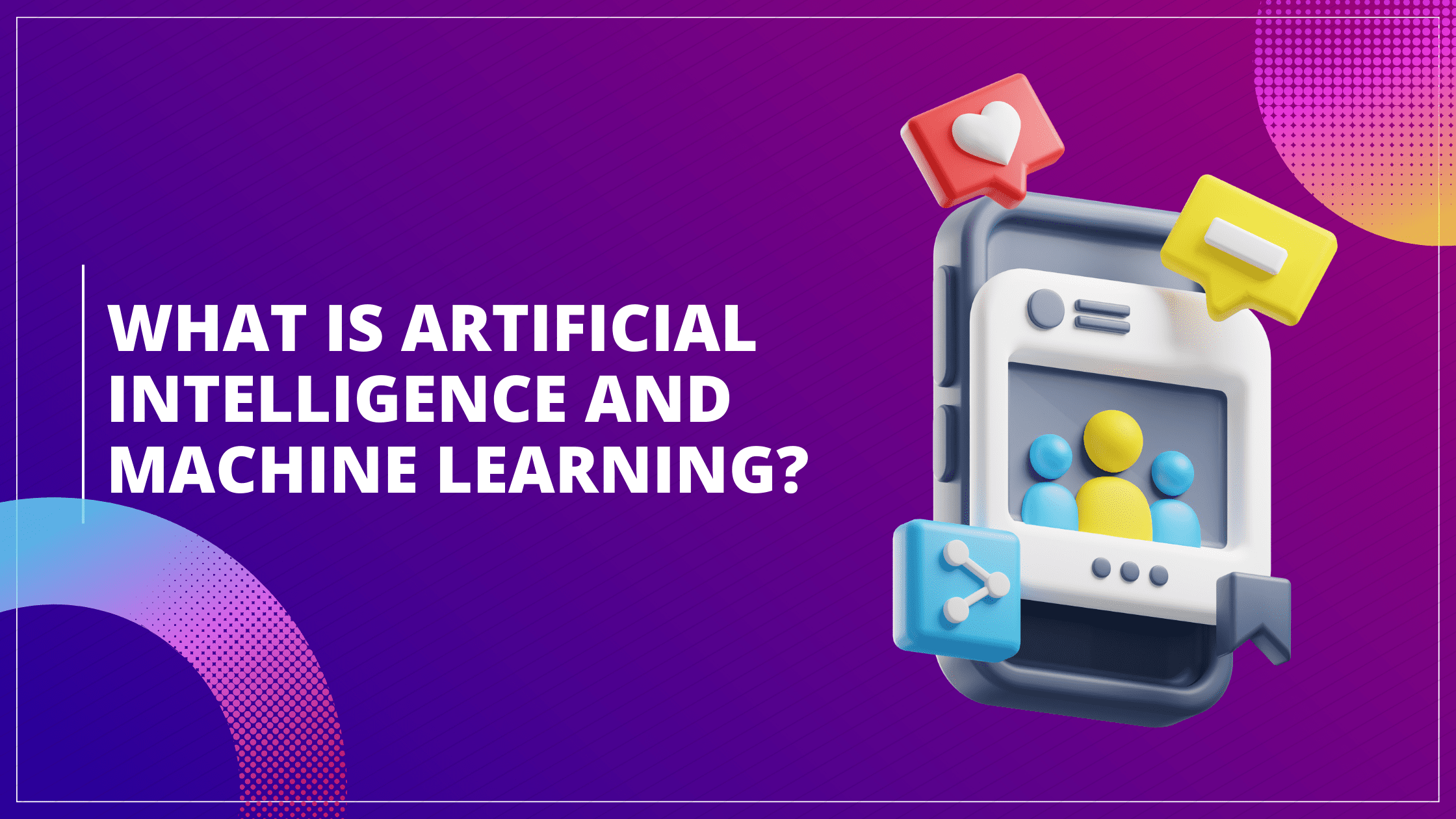What is Artificial Intelligence And Machine Learning?
Many regular folks often mix up the phrases “artificial intelligence” and “machine learning” as if they mean the same thing. But in reality, these two concepts are distinct, although machine learning is indeed a component of artificial intelligence. To put it simply, artificial intelligence covers a wide range of topics, and machine learning is just a smaller part of it.
We’ve covered everything you need to know on Artificial Intelligence and Machine learning so you do not have to. Here is a quick rundown on what artificial intelligence and machine learning is.
What is Artificial Intelligence?
Artificial intelligence (AI) refers to computer software designed to imitate human cognitive abilities and carry out intricate tasks that were once exclusive to humans, such as decision making, data analysis, and language translation.
In simpler terms, AI is like a set of instructions written in code that allows computers to perform tasks requiring human-like reasoning. Unlike automated systems that merely follow predetermined instructions, AI-powered machines can learn and improve their performance through interactions.
AI serves as an umbrella term encompassing various interconnected but distinct subfields. Some common subfields within the broader realm of artificial intelligence include:
Machine learning (ML): A subset of AI that involves training algorithms with datasets to create machine learning models capable of handling specific tasks.
Deep learning: A subset of ML that uses artificial neural networks (AANs) to carry out more intricate reasoning tasks without human intervention.
Natural Language Processing (NLP): A field combining computer science, AI, linguistics, and ML to develop software capable of understanding and interpreting human communication.
Robotics: A field combining AI, computer science, and electrical engineering to create robots that can learn and perform complex tasks in real-world environments.
What Is Machine Learning?
Machine Learning is a specialized field within artificial intelligence that revolves around training machine learning algorithms using data sets. The goal is to create machine learning models capable of tackling complex tasks, like image sorting, sales forecasting, or big data analysis.
In our daily lives, machine learning plays a significant role and is likely the primary way most people interact with AI. You’ve probably encountered machine learning in various ways, such as:
● Processes where videos are recommended to you when you view videos on platforms like YouTube
● Troubleshooting issues online with the help of a chatbot that guides you to relevant resources based on your responses.
● Utilizing virtual assistants that promptly respond to your requests, like scheduling meetings, playing specific songs, or making calls for you.
What Is The Difference In Artificial Intelligence and Machine Learning?
One of the key distinctions between Artificial Intelligence and Machine Learning lies in their approaches to achieving intelligence. AI often involves the utilization of both rule-based programming and ML techniques, with ML playing a significant role in many AI systems. While AI aims to replicate human intelligence in a broad sense, ML specifically focuses on the development of algorithms that can learn and adapt based on data. This adaptive nature of ML allows it to tackle complex problems and tasks, such as image and speech recognition, natural language processing, and even strategic decision-making.
Also Read: Tips and Tricks of Voice Search Optimization
AI is a broader field that encompasses the creation of intelligent machines, while ML is a specialized area within AI that focuses on developing algorithms capable of learning and improving from experience. Both Artificial Intelligence and Machine Learning play essential roles in advancing technology and have applications in various industries, ranging from healthcare and finance to transportation and entertainment. As the field of AI continues to evolve, the synergy between Artificial Intelligence and Machine Learning will likely lead to significant advancements in automation, problem-solving, and decision-making capabilities across diverse domains.
What Is The Role Of Artificial Intelligence And Machine Learning In Business?
Artificial Intelligence and Machine Learning are essential for modern businesses, transforming industries and operations. They analyze vast amounts of data, providing valuable insights and enabling strategic decision-making. Personalization and customer experience improve with targeted marketing, recommendations, and support. Automation increases efficiency by handling repetitive tasks, freeing up human resources for complex and creative endeavors.
Predictive analytics aids in forecasting and optimizing inventory management. Artificial Intelligence and Machine Learning also enhance security, detecting and preventing fraud, and fortifying cybersecurity. NLP facilitates better customer interaction through chatbots and virtual assistants. Market analysis and competitive intelligence empower businesses to make data-driven decisions and identify growth opportunities.
In supply chain and logistics, Artificial Intelligence and Machine Learning predict demand, optimize routes, and improve delivery performance, elevating customer satisfaction. In healthcare, these technologies revolutionize medical image analysis, drug discovery, and patient care, improving accuracy and outcomes. The finance industry benefits from Artificial Intelligence and Machine Learning in credit risk assessment, fraud detection, algorithmic trading, and portfolio management, leading to informed financial decisions and better investment outcomes.
Overall, Artificial Intelligence and Machine Learning revolutionize businesses, fostering innovation and growth.
FAQs
How Many Types Of Artificial Intelligence exist?
There are four main types of AI. They are reactive AI, limited memory AI, theory of mind AI, and self-aware AI, based on the current system of classification.
Is AI considered a part of computer science?
Yes, AI is a sub-discipline of computer science. It aims to empower computers to imitate human intelligence, facilitating the resolution of intricate problems and making decisions on a large scale, in a reproducible manner.
How would you classify AI, as a science or engineering?
Artificial Intelligence (AI) can be described as a fusion of science and engineering. It involves the construction of machines that exhibit intelligent behavior. AI draws from various disciplines, including philosophy, psychology, and computer science, and has also benefited from insights from brain science and linguistics.
Conclusion
Artificial Intelligence (AI) and Machine Learning (ML) are two distinct but interconnected concepts. AI encompasses a wide range of topics, and ML is a specialized field within AI that focuses on training algorithms with data to create models capable of handling complex tasks. While AI seeks to replicate human intelligence broadly, ML specifically aims to develop adaptive algorithms that learn and improve from experience.
Both Artificial Intelligence and Machine Learning play crucial roles in various industries, transforming businesses by providing valuable insights, automating tasks, enhancing customer experiences, and improving decision-making processes. Their applications extend across sectors such as healthcare, finance, logistics, and entertainment, contributing to innovation and growth.
Must follow www.roysumit.com for future updates.



